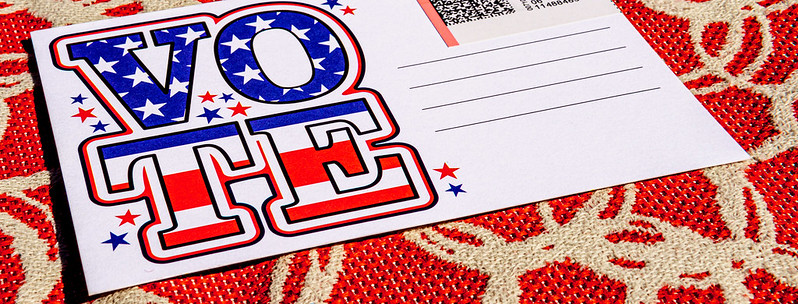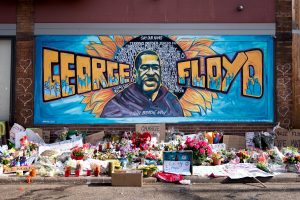photo by Ted Eytan
A video of Florida State Senator Mike Bennett is doing the rounds on social media leading up to the election, and for good reason. In it, Bennett makes the case that laws should make voting more difficult.
“This is a hard-fought privilege,” Bennett said in debate. “This is something people die for. You want to make it convenient? The guy who died to give you that right, it was not convenient. Why would we make it any easier? I want ’em to fight for it. I want ’em to know what it’s like. I want them to go down there, and have to walk across town to go over and vote.”
Since then Bennett was forced out of office by term limit laws, but this sentiment may be more common than we think.
In 2020 especially, the push to make voting more difficult has gained significant traction. Voter turnout is not trending positive leading up to this year. 92,000,000 eligible Americans did not vote in 2016.
25 of the developed OECD countries have higher voter turnout in national elections than the United States, including Estonia and Slovakia. 668,000 fewer volunteers are being recruited as poll workers for 2020, compared with 2016.
11% of U.S. adults lack proper voting identification (as required in 36 states), a common barrier for voters in non-white communities and poor voters.
The statistics also point to the obstacles specifically people of color face when trying to vote.
15% of Black voters reported trouble finding a polling station in 2016, 29% longer wait times to vote were experienced in Black communities than white communities in 2016, and 17,000,000 people nationwide were kicked off voter registration lists between 2016 and 2018, ostensibly to ensure accuracy but disproportionately affecting people of color.
An election under a Trump presidency goes even further. Amidst the coronavirus pandemic the demand for rethinking how we can vote has never been higher, and Trump has pushed against this every step of the way.
This is nothing new for the Republican party. Claims of Voter Fraud has its roots in Reconstruction-era efforts to suppress the votes of newly freed slaves and came roaring back to life after the passage of the Voting Rights Act.
This is why to some it may not be surprising when Trump suggests he won’t honor a peaceful transfer of power, it’s particularly threatening. The Republican base falls in line with this rhetoric and believes in it.
All the Trump administration needs to do is find one example, take it out of context, and apply it to the broad scale to justify their actions.
“In my own state of Indiana in 2012,” Pence said on Fox News in July, “literally, there was a group of people that were prosecuted for falsifying ballots. The reality of voter fraud is undeniable.”
But it is deniable though, especially because he doesn’t even have the facts straight in the case he’s referencing here. According to the Washington Post, this specific case wasn’t even in 2016, and investigations don’t provide proof of falsifying ballots.
So while access to voting has been made a partisan issue, it really shouldn’t be. In a country where voting is an inalienable right, citizens no matter their color or social standing should be allowed to vote.
So what can we do to make voting easier?
Well, for starters we can make registering to vote easier. Voter registration should be in whatever medium is most accessible to citizens, and there should be options. in 40 states (up from 32 just four years ago!) plus Washington, DC, you can already register to vote online.
Voter registration could also be automated, and the need for your address to be updated every time you move within state could be removed. When you register with the DMV they could turn around and register you to vote, this is already happening in 16 states.
The idea that anyone could wait in line for hours to vote is a clear roadblock to true democracy. Funding should be allocated to create more polling places, are at the very least end the closure of current ones.
Expanding how we vote would also be huge. There are still ten states that don’t allow early voting. Absentee voting, or voting by mail without a specific excuse, would also be huge. This is already allowed in more than half of states, especially amidst the coronavirus pandemic. But what is keeping us from allowing this innately?
The only reason to prevent citizens from voting is out of fear that the population of the country won’t match your personal interests. Above all else, this is why restrictive voting behavior needs to be fought at every step.









